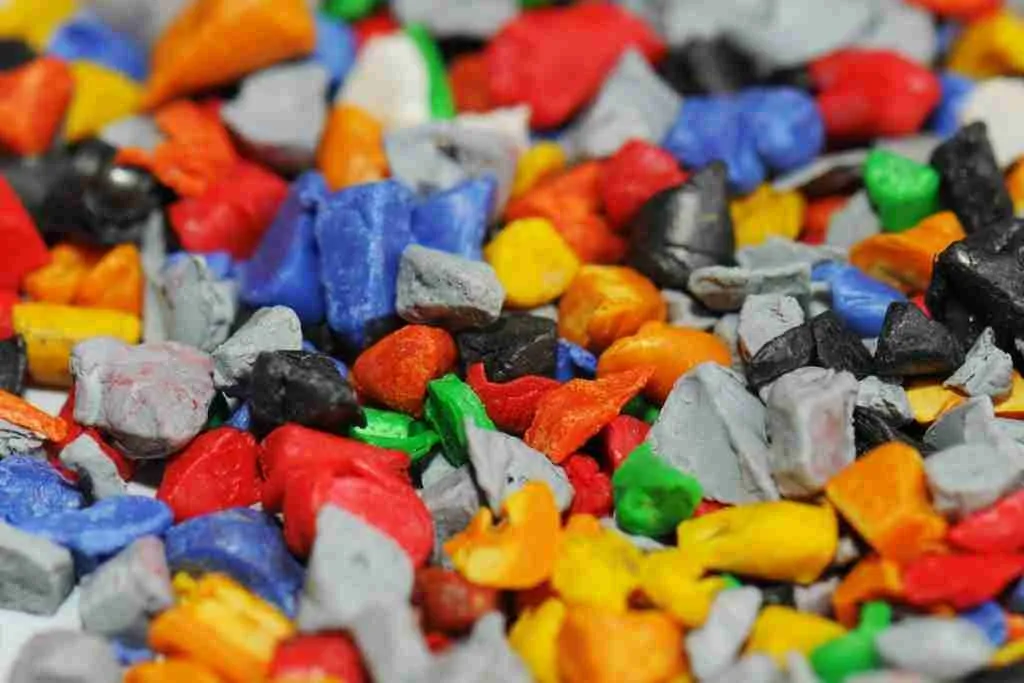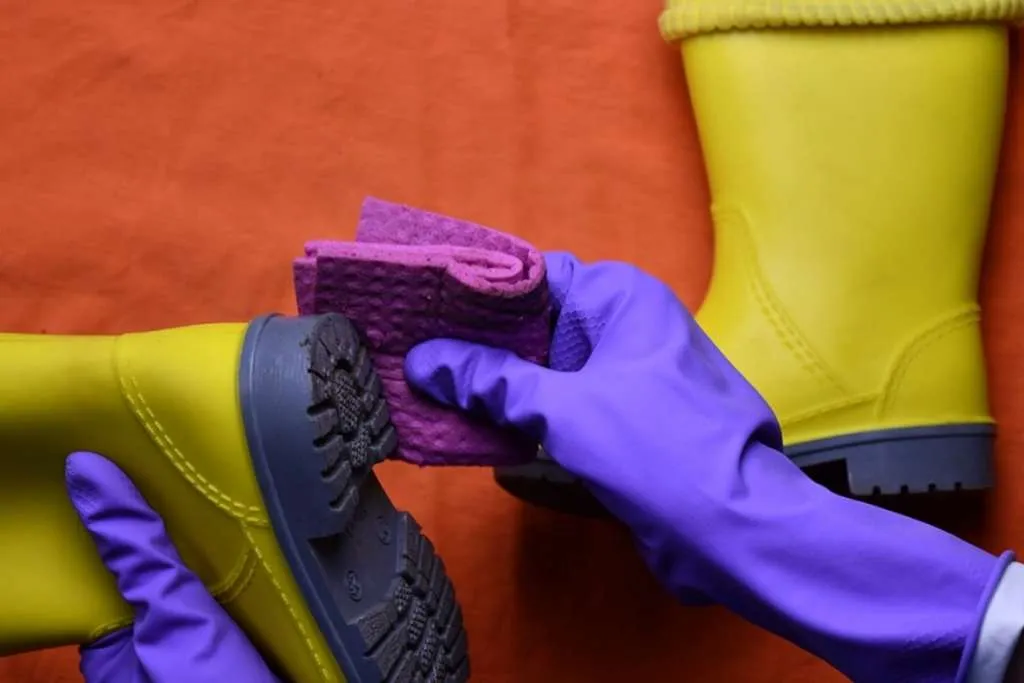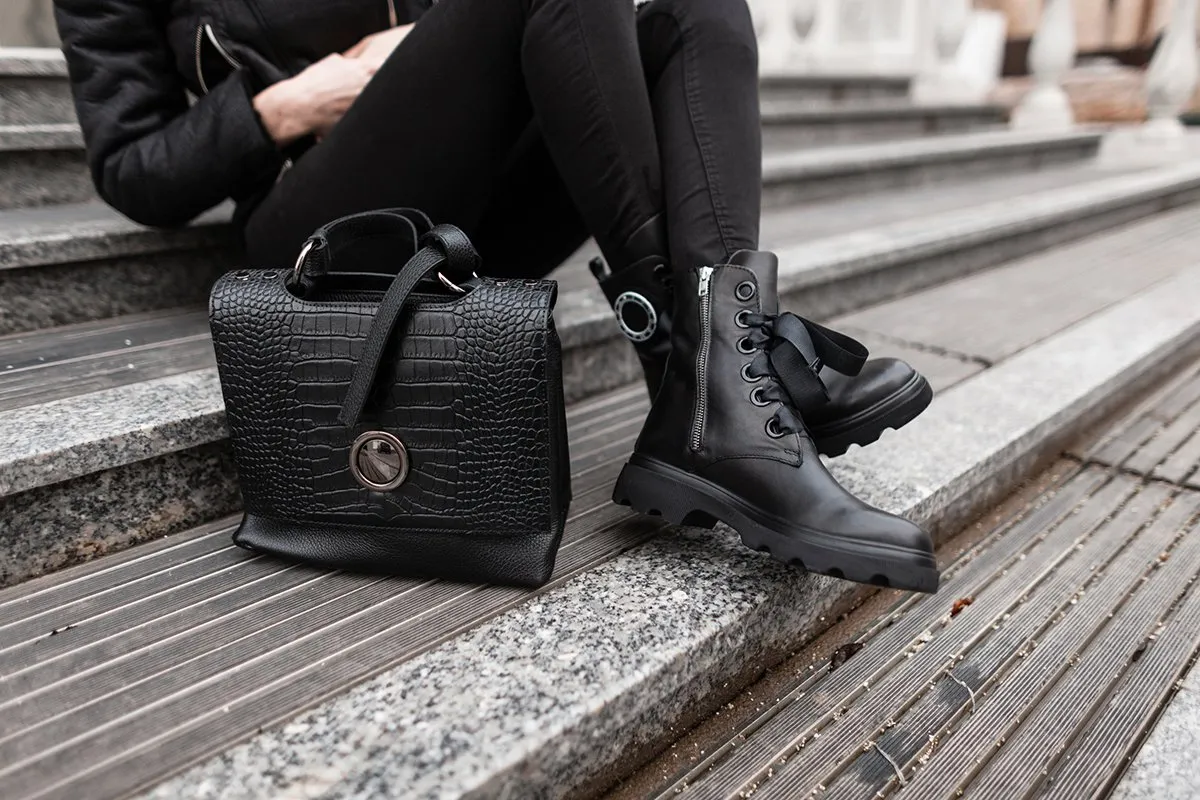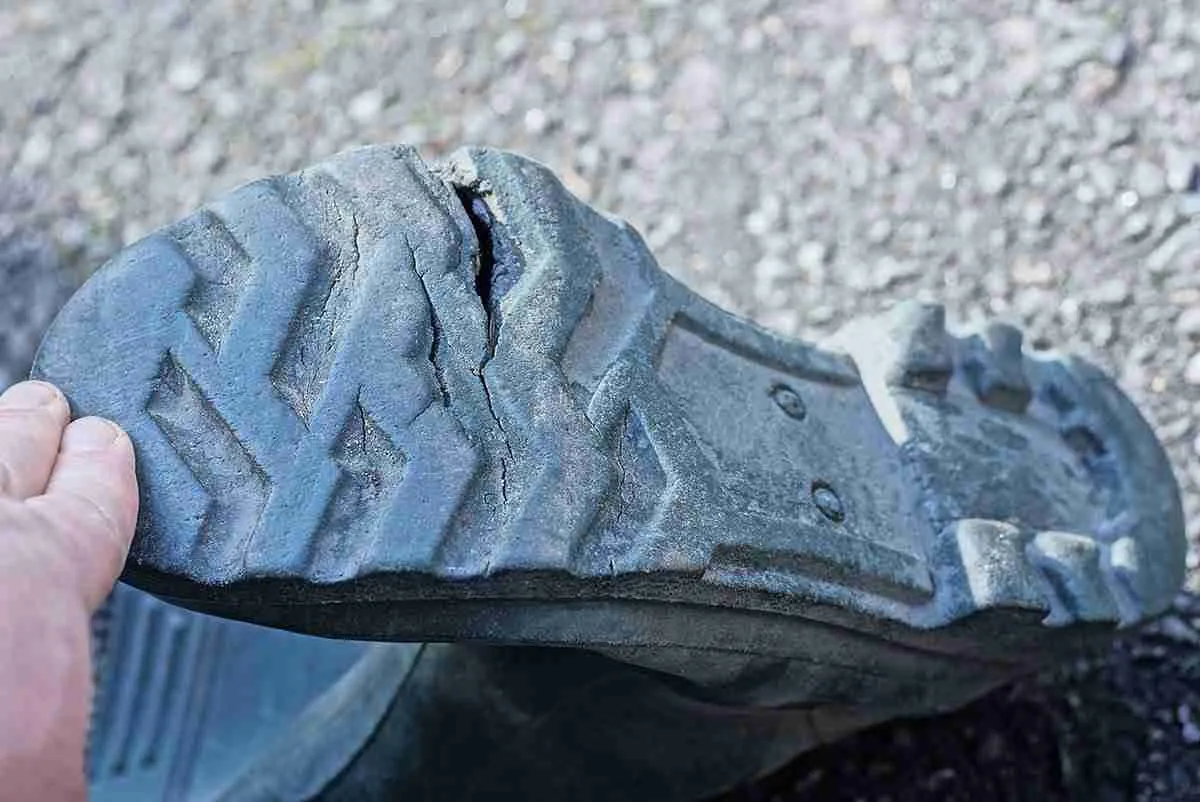The debate surrounding whether to buy boots made from PVC or rubber has raged for years. Like the Pepsi/Coke debate or the perennial Apple/Android decision, we’re dealing with a pair of products that have pros and cons. Now, how are PVC and rubber boots different from one another?
Polyvinyl Chloride (PVC) is a synthetic material made from plastic, whereas rubber is a naturally occurring substance extracted as sap from rubber trees. These boots differ in terms of their aesthetics, durability, weight, and cost. Generally, rubber boots are more long-lasting than PVC ones.
If you currently find yourself in a state of limbo regarding which type of boot to acquire, then I advise you to continue reading. The remainder of this article will discuss PVC and Rubber boots in greater detail, along with the pros and cons associated with each boot type.
Are PVC and Rubber Boots the Same Thing?
There’s a frequently held misconception surrounding this very point. I believe that it’s essential that this is clarified at the beginning of the article.
PVC and Rubber boots are not the same. Unlike rubber boots made of rubber extracted from trees, PVC boots are made of plastic polymer. Rubber is a substance found on every automobile on earth, which means boots made of rubber are strong and sturdy.

Although PVC and Rubber boots look remarkably similar, there are some key differences between them.
PVC Boots Are Cheaper Than Rubber Boots
As with any product, the cost will play a significant role in the decision-making process.
On the cost front, it’s a clear victory for the PVC boots. They’re made from a synthetic compound and can be mass-produced and sold at a competitive price. Rubber boots are almost always going to be more expensive, owing to the labor-intensive extraction process.
If the cost will have a significant bearing on your decision, then perhaps it makes sense for you to invest in a pair of PVC boots.
Rubber Boots Are a Higher Quality Product Than PVC Boots
Within the world of consumer products, it’s a universally acknowledged truth that you get what you pay for. It turns out that boots are no different.
More often than not, PVC boots will be of lower quality than their alternative made from rubber. One way in which this quality difference manifests itself is the durability of the boot. If you want boots that’ll stand the test of time, rubber is your material of choice.
Several years ago, an organization conducted a comprehensive comparison of PVC and rubber floors. The eventual finding was that the more expensive rubber flooring ended up paying for itself in the long term.
Rubber Boots Are Generally More Comfortable Than PVC Boots
Comfort is a somewhat subjective phenomenon. What I may find to be comfortable, another person may find to be abhorrent. Nevertheless, the difference in the behavior of the materials allows me to infer that rubber boots should be the more comfortable of the two choices.
When you place the two types of boots next to each other, PVC tends to be a lot more rigid than rubber. This rigidity can have the effect of creating just and sharp edges within the boot, occasionally leading to discomfort and skin irritation.
Some manufacturers seek to rectify this by incorporating a small amount of rubber into the PVC boot. The minute addition of rubber helps to make the boot more elastic while still keeping the price relatively low.
All in all, I feel equipped to state that rubber boots will be the more comfortable choice of the two.
PVC Boots Have a Shiny Finish
Here we see a case of horses for courses, as it’s almost impossible to definitively state that one type of boot is better looking than the other. In fact, the visual differences between the two types of boots are pretty minuscule.
In a nutshell, the plastic within the PVC compound gives the boots a shiny finish, whereas the rubber boots are a bit duller as they don’t have that glossy finish.
Perhaps you could make the case that the rubber boots are a bit more understated, but fashion isn’t an exact science meaning that it ultimately comes down to your sense of style and taste.
The P in PVC Stands for Practicality
With respect to the more practical elements of owning and wearing a pair of boots, the PVC alternatives appear to hold the edge.

PVC is a lot lighter than rubber, meaning PVC boots are ideally suited for anybody who wants to wear them frequently or walk long distances in them.
In addition, PVC boots tend to be almost 100% waterproof. There’s nothing worse than a pair of soggy socks after stomping in a puddle, so the ability to keep your feet dry is something that enhances the appeal of PVC boots.
Finally, PVC boots are coated with a variety of chemicals that confer protection from harsh environments. So, if you intend to use your boots to work, or to do some wilderness exploring, there’s a case to be made for PVC boots.
PVC Boots Aren’t Biodegradable Like Rubber Boots
After the COP26 summit, this is a topic at the forefront of everyone’s minds. As consumers, we all have a responsibility to assess our carbon footprint and impact on the environment.
Rubber is a biodegradable substance, whereas PVC isn’t. When PVC does begin to decompose, it can release toxins that may seep into the groundwater. What’s more, the process of chemically synthesizing PVC is a lot more environmentally taxing than extracting rubber sap from the trees in the tropics.
For some consumers, this nugget of information could prove to be the differentiating factor between PVC and rubber boots.
Conclusion
Choosing between PVC and rubber boots isn’t an easy decision, as there’s a case to be made for products.
PVC boots are cheaper, lighter, waterproof, and superior in harsh environments. In contrast, rubber boots combine higher quality and durability with a smaller environmental impact.
Ultimately, the choice will boil down to a person’s set of preferences and circumstances. Neither of the choices is going to leave you disappointed.
In addition, whatever choice of material you choose, there are many choices available online to choose from.
What To Read Next:






